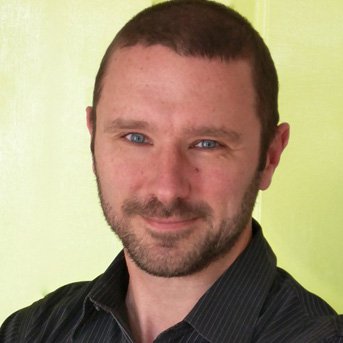

Over the course of an illustrious 30-year career, IMPACT’s long time media training partner, The Hard Word’s Chris Sheedy (photo), has been on both sides of the interview. According to Chris, media training can transform even the most media-shy spokespeople into headline-grabbing thought leaders.
Despite his extensive experience as a journalist, it wasn’t until he was on the other side, as the interviewee, that Chris learned the importance of media training. “For five years in London I was the man with the clipboard, tape measure and timer for Guinness World Records. You can only imagine the number of wildly different questions I received from journalists,” he says.
“It was as a result of some of these questions that media training became almost unnaturally valuable to me and my colleagues.”
“I certainly wasn’t perfect when I started out – far from it – but we used to do media training regularly as a team, and by the time I finished up I was pretty close to perfect. No one could ever bother me with anything they asked.”
“In fact, the hardest question I used to get became the easiest one to answer.” Chris says there are three key lessons to master to become a confident spokesperson.
1. Understand and demystify the media
To be good at any job, you need to understand the pressures of those around you. In media training, Chris says, you get to the heart of what the journalist on the other side is facing, and you learn how to give answers that are mutually beneficial. The other important part is demystifying the media’s motives. “There’s this fear out there that every journalist is going to take an ‘A Current Affair’ approach and go for a ‘gotcha’ interview. The reality couldn’t be further from the truth,” he says.
“Taking time to learn what a day in the life of a journalist is like will quickly reveal that, for the most part, it’s in a journalist’s best interest to make their interviewee look good! Spokespeople that are fearful of bad interviews are only doing themselves a disservice by missing the opportunity to be out there in the media, positioned as a thought leader.”
2. Getting your messages across; without being boring
Once you understand the journalist’s motivations, the next step is learning how to make your answers interesting.
“People used to care about the ins and outs of the business and its achievements, but they simply don’t anymore,” Chris says.
“The challenge for the interviewee, then, is to answer questions on the audience’s broader topics of interest while also delivering messages specific to their business. The best interviews are a mutually beneficial partnership between the journalist and interviewee, and getting the balance right will only improve with practice.”
3. Making mistakes in a safe place
Chris says the thing about practice is that mistakes are necessary for improvement. “Navigating an interview can be mentally tough, so you’re bound to slip up at some point. Media training gives you an environment where you can make those mistakes safely, and find new ways of wording answers to ensure you don’t make it again.”
He says this might be the single most important element of structured media training, speaking from his own experience.
So, what was the trickiest question he encountered?
“It was always the question around Guinness World Records getting increasingly silly,” he says.
“Inevitably there would be a question along the lines of ‘aren’t these records just ridiculous now? What’s the point in keeping track of them any more?’, and we’d be ready with a perfect answer.”
All ECCO Agencies offer media training. Mostly it’s delivered over a half-day interactive session that teaches attendees about media and the daily life of journalists, as well as practiced techniques to ensure you get your message across, every time.
In addition to a personalised report that outlines areas of strength and areas for development, attendees in Australia may also learn Chris’s perfect answer to the most difficult question he would get at Guinness World Records.
Access to the ECCO Global Communications Network is simple. Contact information for a specific geography is available on the agency overview pages accessed here or contact the ECCO Global Communications office via email info@ecco-network.com.